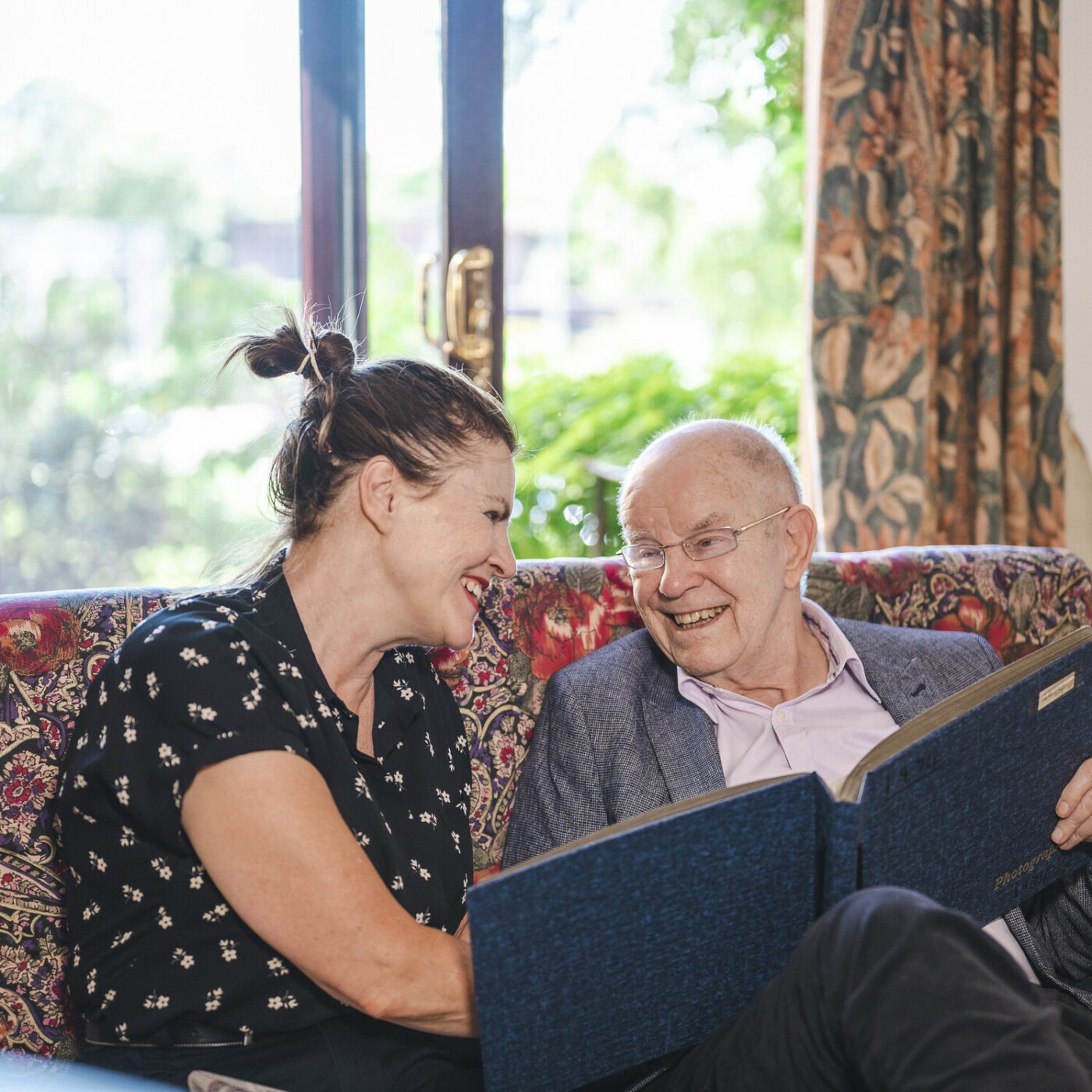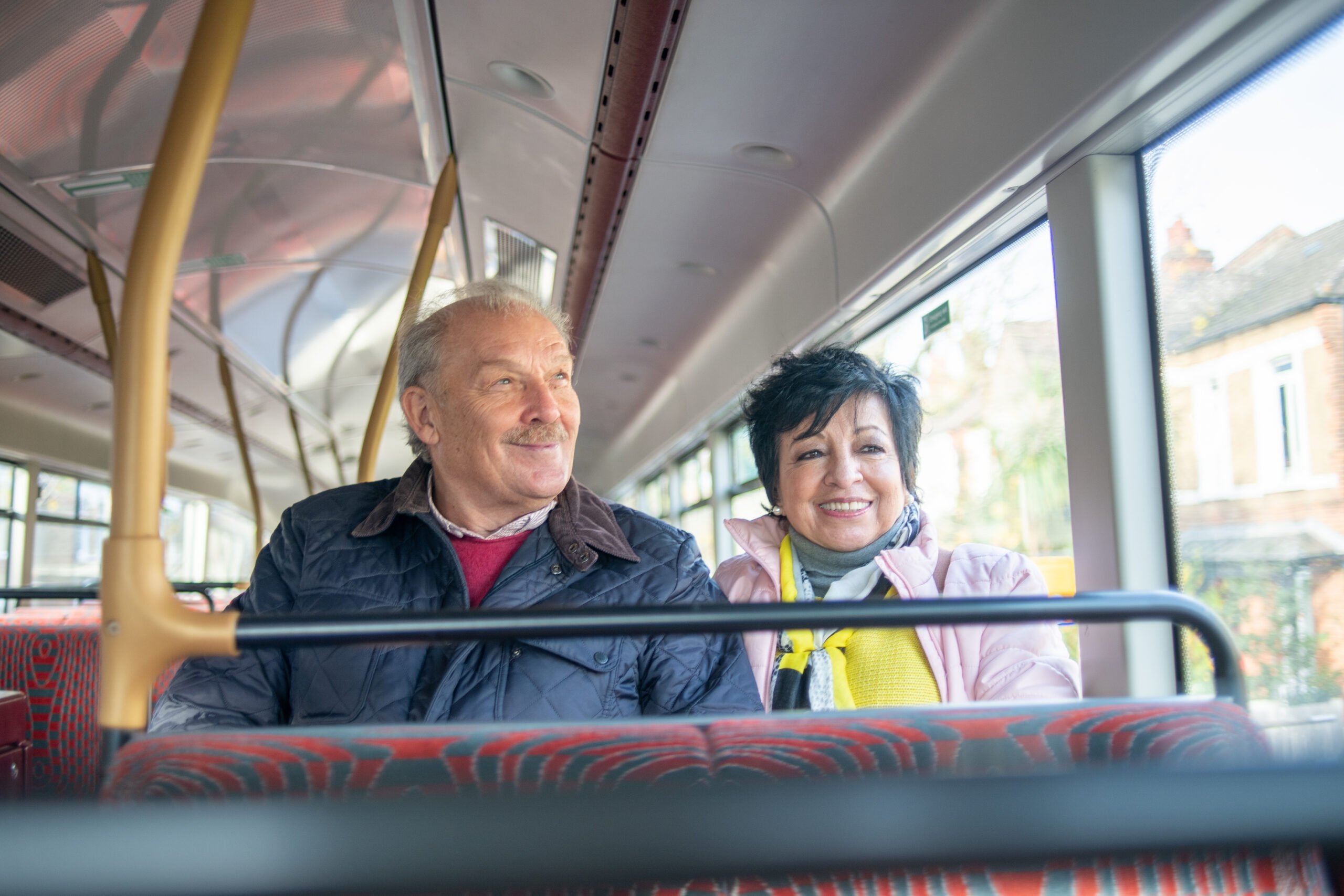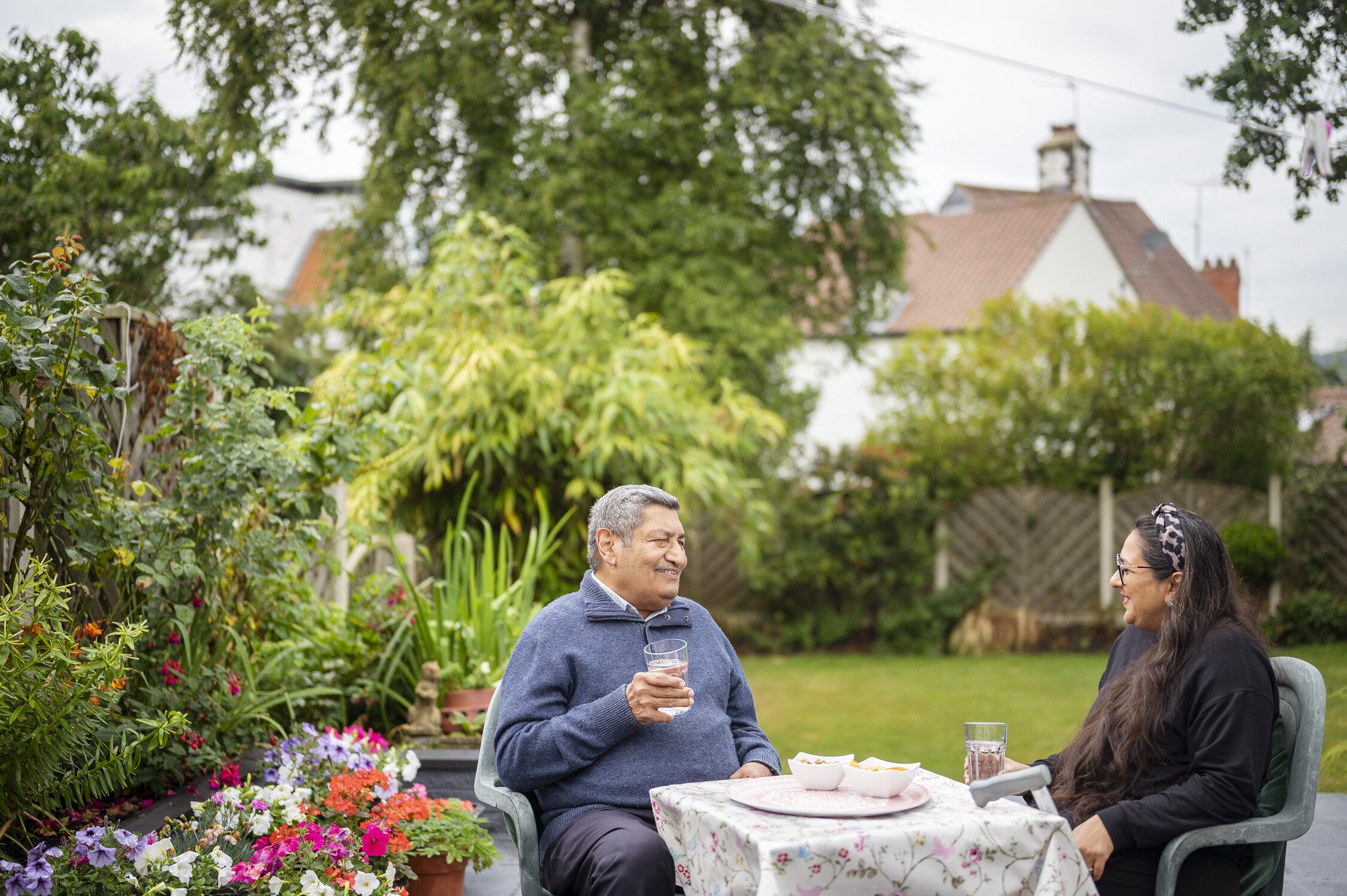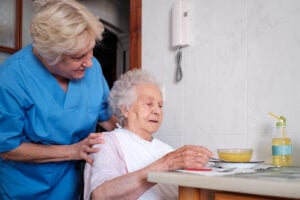What are sitting services for the elderly?
Tags
Home Help
If you’re looking for a little additional care for yourself or a loved one, you may have come across elderly sitting services – but what do they involve? Find out more about the level of support they provide, and who they’re best suited to here.
What’s an elderly sitter service?
Each care company can have its own definition of what they consider a ‘sitting service’ to be – which can be really confusing if you’re new to the world of later-life care.
However, in the most basic terms, an elderly sitter service is a form of respite care. It’s usually arranged to provide a few hours of daycare each week so that a full-time family caregiver can take some time away from their caring responsibilities.
A trained caregiver or volunteer will visit and ‘sit’ with the person needing care for anything from a few hour stints each week, to multiple visits a day. During this time they’ll ensure the person they’re sitting with is safe, supported, and gets the best quality of life possible.
An elderly sitter may sometimes be referred to as a personal assistant.
What are the duties of a sitter for the elderly?
What your sitter can do will entirely depend on whether you’re using a professional service or a volunteer scheme. However, most services will offer some level of help with the following –
- Support with essential daily activities e.g meal preparation
- Help with light everyday household tasks e.g washing up or hanging laundry
- Provide basic companionship e.g catching up over a cup of tea
- Help with hobbies and entertainment e.g playing board games
- Support with getting to grips with household gadgets
- Encourage social interaction e.g helping attend clubs, day centres, or seeing friends safely
- Take care of errands e.g shopping, or going to the post office or pharmacy

Why would an older person need to use a sitting service?
Many elderly people are keen to remain as independent as possible. However, when strength, mobility, and cognition declines over time, they may benefit from attentive assistance during the day to help them stay safe and well at home. Full-time care services, such as live-in care or traditional domiciliary care packages may offer too much support for this level of need – meaning they end up paying for services or hours they don’t use.
In the early stages, older people with dementia can benefit from a sitting service to help manage symptoms of memory loss or confusion. For example, a sitting service can help with certain daily tasks such as managing appointments, cooking dinner safely, or getting out and about without getting lost or overwhelmed.
For someone who has recently been discharged from the hospital and requires non-medical care – having the in-home support of a sitter can aid in a positive recovery. They’ll ensure the person they’re caring for can move around their home safely and is getting the right nutrition, which can reduce the likelihood of another hospital admission.
Benefits of home sitting for the elderly
Using a sitting service for a couple of hours a day may help a loved one get used to the idea of accepting help and company from someone new full-time. This can be particularly important for those with chronic health conditions that are likely to get worse as they age.
Using a sitting service can benefit the entire family. Not only will they have peace of mind knowing that someone is there to keep their loved one company, but if they take on a lot of the caring responsibilities themselves, they’ll also have some time each week to safely take a break, or focus on other family commitments.
For adult children who have taken on the caregiving role, a few hours of regular respite is really important for their own mental well-being. It can prevent them from becoming isolated from their own lives, reduce the risk of burnout, and help keep family time as time well spent together.
For older people who live alone having regular visits can reduce their own feelings of isolation too. Prolonged, chronic isolation doesn’t just make people feel sad or alone, it can have a lasting impact on mental health, causing negative thoughts, and low self-esteem. This, in turn, can lead to physical health problems such as an increase in blood pressure or heart problems.

What are the limitations of elderly sitter services?
If you’re using a volunteer or private sitting service, they may be unable to provide personal care or support that requires physical contact. Private sitters who are not part of an agency may lack certain training or the relevant care certifications required to do this safely. And If relying on a volunteer who’s not part of a recognised scheme, such as a friend or neighbour, they’ll likely lack liability insurance as protection in case something goes wrong.
Private sitters and volunteers are best placed to offer compassionate care and companionship and are unlikely to be suited to those with chronic health conditions.
It’s also important to be aware that because different providers include different levels of support in their sitting services, the day costs may vary. Some may also charge additional costs at certain times when demand is higher, such as over bank holidays.
How to find a companion or sitter service for an older person?
Using a telephone befriending scheme
If your loved one lives alone, but is fiercely independent and able to manage everyday tasks themselves, they could benefit from a telephone befriending service. Schemes such as The Silver Line and The Royal Voluntary Service match older people with a volunteer ‘befriender’ who shares their interests. They’ll call each week for a chat and to keep your loved one connected to the outside world.
Volunteers
Some charities offer sitting services to ensure family caregivers get enough time away from the responsibility of caring. These are usually run by volunteers and therefore can differ around the UK. They can also connect older people to new friends. The following organisations may be useful to reach out to –
Using an introductory care agency
An introductory agency, like Elder can provide you with a private self-employed carer. Unlike sourcing a private sitter yourself, agencies will have procedures in place to vet and competency assess the professionals they work with.
Read more on home help for older people

Could I benefit from a Meals on Wheels service?
The Meals on Wheels program delivers meals to people who cannot shop for ingredients or cook meals at home. The term “Meals on Wheels” is

Could you benefit from befriending services?
What is a befriending service? Various organisations across the UK offer ‘befriending’ services to the elderly, isolated, or people living with health conditions that can

What are sitting services for the elderly?
If you’re looking for a little additional care for yourself or a loved one, you may have come across elderly sitting services – but what